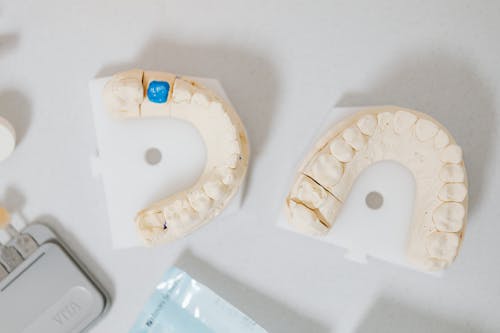Essential Child's Dental Implants Considerations for Parents
When contemplating child’s dental implants, parents must weigh several critical considerations. This involves understanding the child's dental health, age suitability, and the impact of implants on their overall wellbeing. Consultation with dental professionals is crucial to ensure proper evaluation, fostering healthy choices for long-term oral success.
Understanding Child's Dental Implants Considerations
Child's dental implants considerations are increasingly significant as parents seek effective solutions for dental issues facing their children. Traditional methods like bridges or dentures may not always be ideal for growing children, leading many to explore dental implants as a long-term solution. However, before proceeding, parents must assess various factors, including the child's age, dental health, and overall development. Since children's jaws are still growing, it's critical to determine an appropriate timeframe for implants. Furthermore, dental professionals typically recommend that children must have reached a certain level of maturity before they can receive an implant to ensure successful outcomes.
Age and Developmental Factors
Age plays a pivotal role in child's dental implants considerations. Generally, most dentists recommend waiting until the child’s jaw has fully developed, which can vary between individuals. This is crucial as placing dental implants in young patients can lead to misalignment as their mouths continue to grow. Hence, parents should consult with a pediatric dentist specializing in dental implants to outline a developmentally appropriate plan. Understanding the nuances of how children grow can significantly influence whether dental implants are a smart choice. Careful evaluations and proper timing can lead to a successful dental implant journey for children.
Impact on Oral Health and Functionality
A significant aspect of child's dental implants considerations lies in their impact on a child's oral health and functionality. Dental implants not only restore the appearance of teeth but also support long-term health by preventing bone loss in the jaw. When a tooth is missing, the underlying bone can start to degrade, leading to further complications with speech and eating. Thus, opting for implants can provide a robust solution to maintain a healthy mouth as well as bolster overall confidence in children. Furthermore, discussing the benefits of implants can help children understand the importance of oral health, leading to better hygiene practices as they grow.
Cost and Financial Considerations
Another vital factor in child's dental implants considerations is the financial aspect. Dental implants can be a substantial investment, and parents should evaluate the long-term benefits against initial costs. Understanding potential insurance coverage and financing options available can alleviate the financial burden. Additionally, considering the durability and longevity of implants compared to other dental solutions can present implants as a cost-effective choice in the long run. Parents should engage in thorough discussions with dental offices to explore all financial avenues before making a decision.
Consultation with Dental Professionals
Consultation with dental professionals is a cornerstone in addressing child's dental implants considerations. Parents should seek experienced pediatric dentists or oral surgeons who specialize in implants for children. These consultations allow parents to gather necessary information about the procedure, including risks, benefits, and maintenance after the surgery. Moreover, professionals can provide tailored advice considering the unique circumstances and dental profiles of each child. A comprehensive understanding gained through these consultations can empower parents to make informed decisions, ensuring the child's dental health remains a priority.
Long-term Maintenance and Care
Finally, long-term maintenance and care are crucial elements in child's dental implants considerations. Children will require regular check-ups to monitor implant health and ensure their growth aligns with dental expectations. An open dialogue about proper dental hygiene practices from an early age can help maintain the implants effectively. Parents should also be aware of the potential need for adjustments or replacements as the child matures. Emphasizing the importance of ongoing care promotes a healthy attitude towards dental health, setting the stage for proactive measures that can benefit children well into adulthood.
